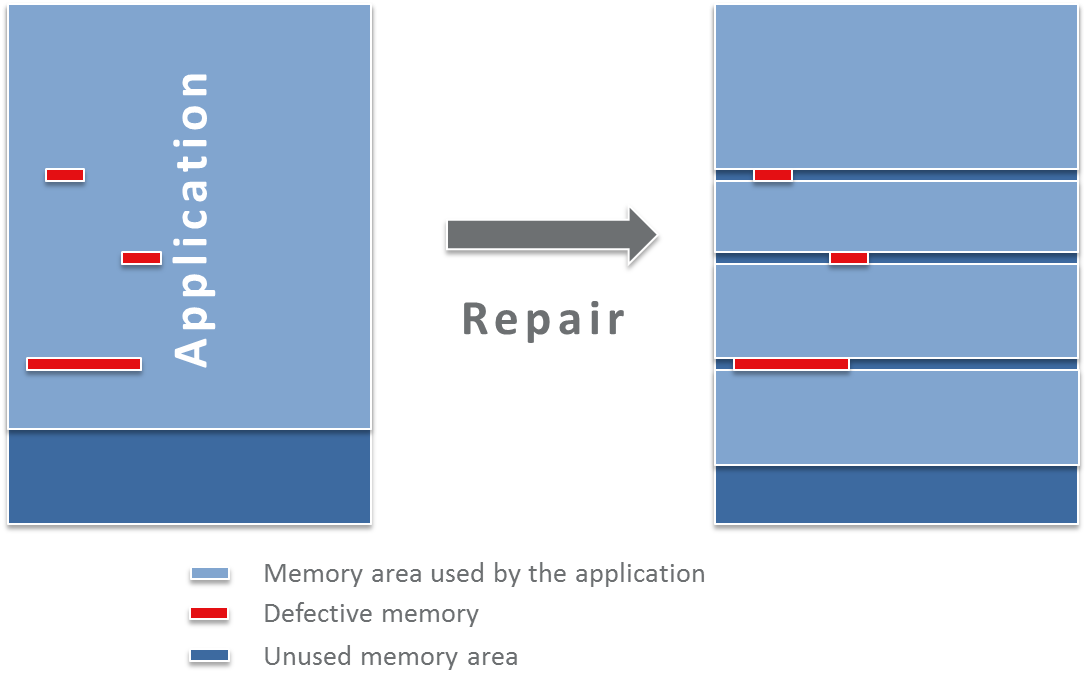Down scaling of CMOS processes allows fabrication of embedded systems with additional features at lower cost. This causes that the quantity of embedded systems increases and the application area is getting manifold. On the other side the scaling in technology reduces the lifetime of the systems because of aging. Furthermore during production the process variation decreases the yield. In both cases fault tolerance techniques can be helpful to improve yield and lifetime. Well-known fault tolerance techniques are not applicable onto resource-restricted platforms due to the additional and expensive effort for hardware redundancy. In the DIAMANT project innovative strategies will be developed and analyzed. One approach is to use already-existing redundancy in the system and an autonomous reconfiguration of the device. Current research activities are concentrating on memory in embedded systems and a reconfiguration of software to compensate memory faults.
Beside these techniques, which aim for improvement of reliability at hardware level, the wireless communication in distributed system influences the reliability of the network. Due to this reason innovative techniques for an adaptive fault tolerant communication should be developed. The approach allows an optimal trade-off between required reliability and the usage of available resources (remaining energy, bandwidth of the channel).


